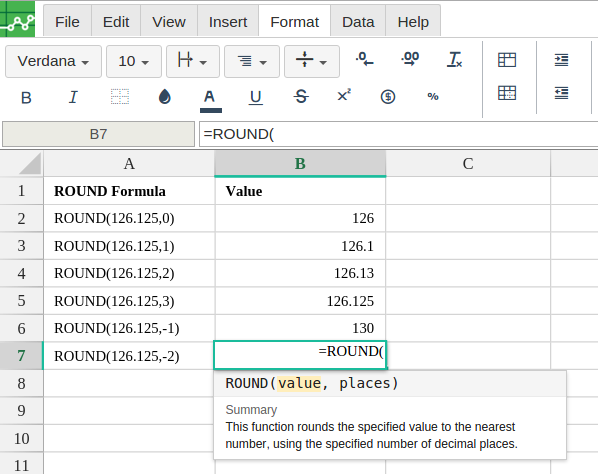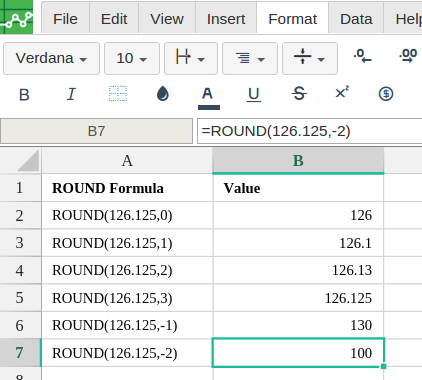ROUND
Definition
Rounds a number to a certain number of decimal places according to standard rules.
Sample Usage
Syntax
ROUND(value,places)
value- The value to round toplacesnumber of places.places- [ OPTIONAL -0by default ] - The number of decimal places to which to round.placesmay be negative, in which casevalueis rounded at the specified number of digits to the left of the decimal point.
Notes
- Standard rules indicate that when rounding to a particular place, the next most significant digit (the digit to the right) is considered. If this digit is greater than or equal to 5, the digit is rounded up, otherwise it is rounded down. This occurs irrespective of sign; that is, 'up' and 'down' are in terms of magnitude.
See Also
TRUNC: Truncates a number to a certain number of significant digits by omitting less significant digits.
ROUNDUP: Rounds a number to a certain number of decimal places, always rounding up to the next valid increment.
ROUNDDOWN: Rounds a number to a certain number of decimal places, always rounding down to the next valid increment.
MROUND: Rounds one number to the nearest integer multiple of another.
INT: Rounds a number down to the nearest integer that is less than or equal to it.
FLOOR: Rounds a number down to the nearest integer multiple of specified significance.
CEILING: Rounds a number up to the nearest integer multiple of specified significance.
In order to use the ROUND formula, start with your edited Excellentable. Then type in the ROUND Formula in the area you would like to display the outcome:
Excellentable generates the required output :
A
|
B
|
|
|---|---|---|
1
|
||
2
|
||
3
|
||
4
|
||
5
|
||
6
|
||
7
|


